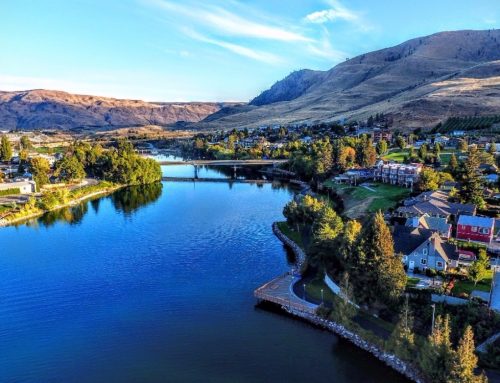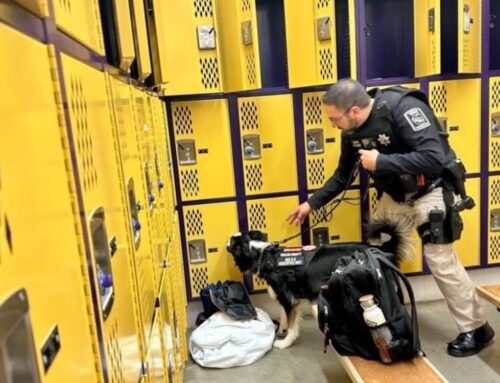Chelan, Douglas county commissioners to meet March 1 for final selection
information released by Chelan and Douglas Counties
A subcommittee of the Chelan-Douglas Health District’s governing board has narrowed its search for its new board members down to 10 finalists. The list of finalists now goes to the Boards of County Commissioners for Chelan and Douglas counties for their consideration.
Final selection of five new at-large board members will be decided by a majority vote of the two county boards. The six county commissioners will meet via Zoom at 1 p.m. on March 1 to not only make this decision but also discuss proposed changes to the health board’s bylaws, which will reflect the changes to the board’s new structure.
The 10 finalists were chosen with the future in mind, said Chelan County Commissioner Kevin Overbay, who serves as the CDHD Health Board’s chairman.
“When choosing the finalists, we considered the future of the health district, not so much the ongoing pandemic,” Overbay said. “Our goal was to give the two county boards 10 strong candidates who will help govern the agency for the next four years. And I am confident we have done that.”
The 10 finalists are:
- Alma Chacon (community stakeholder): Chacon is the executive director of CAFÉ, with more than 30 years of experience working with underrepresented communities in the region. Café, under Chacon’s leadership, has engaged in several health-related initiatives over the years.
- Maria Hanson (consumer of public health services): Hanson worked at Link Transit for 29 years before retiring last year. In her application, she described having experienced personal health care challenges and using the health district’s services while raising her children and grandchildren.
- Dr. Kristen Hosey (public health agency/health care facility): Dr. Hosey is the past nursing program director at Wenatchee Valley College. She holds a clinical associate professor appointment at the University of Washington in the School of Nursing as well as the Department of Global Health.
- Joseph Hunter (consumer of public health services): Now a certified recovery coach and peer counselor, Hunter spent 20 years in active addiction, using community resources to reach sobriety. Today he works for North Central Accountable Community of Health and is a core group member of the Central Washington Recovery Coalition.
- Daniel Moody (community stakeholder): Moody has a professional history of working with disabled adults in adult family homes and convalescent settings. A former coach for the Wenatchee Special Olympics, he also has served in leadership positions on a variety of nonprofit boards.
- Dr. Bindu Nayak (public health agency/health care facility): Dr. Nayak is an endocrinologist at Confluence Health and co-founder and co-chairman of the Health Equity, Diversity and Inclusion Council at the hospital. She was appointed to the Washington State Disaster Medical Advisory Council as one of two social justice and health equity specialists in the state.
- Michael Peterson (public health agency/health care facility): Peterson is a toxicologist and public health scientist who has been practicing in the field for more than 20 years. Currently, he works for an environmental health and risk sciences consulting firm and serves on the Washington State Governor’s Industrial Safety and Health Advisory Board.
- Dr. Carin Smith (community stakeholder): Smith is a small business owner and a veterinarian. Her clinical practice knowledge includes animal disease transmission, diagnosis, and treatment, including zoonotic disease as it relates to public health. She is an active community volunteer and currently serves on the Board of Trustees for the Confluence Health Foundation.
- Marissa Smith (public health agency/health care facility): A registered nurse, Smith works as an infection preventionist at Columbia Valley Community Health. She has a Master of Science in Nursing Leadership and Management and serves as the medical/technical specialist on the CVCH incident command team.
- Bill Sullivan (community stakeholder): Sullivan is a licensed hydrogeologist with 17 years of environmental health experience in groundwater, wells, drinking water, infiltration and groundwater quality. He owns his own water and environmental firm and is considered one of the region’s top experts in the field.
The restructuring of the Health Board comes at the direction of the state Legislature. In May, legislators passed House Bill 1152, which modifies the composition of local health boards throughout the state. The bill creates comprehensive guidelines for health districts to follow and requires them to balance governing boards with non-elected officials.
The new board must be in place by July 26. It will consist of 12 members: four county commissioners (two from each county), a small cities representative, a large cities representative and six at-large community members. The board currently has eight members.
In early January, the health district called for applications for the at-large seats. The search garnered 34 names of community members who volunteered to serve on the board.
On Jan. 21, a four-member subcommittee of the current CDHD Health Board reviewed those applications. The subcommittee consisted of Jill Thompson, mayor of Waterville; Jerrilea Crawford, mayor of East Wenatchee; Douglas County Commissioner Marc Straub; and Overbay. CDHD Health Administrator Luke Davies supported the subcommittee.
The subcommittee was tasked with dividing the applications into three categories: health care providers, consumers of public health who have faced significant health inequities, and community stakeholders, such as local nonprofits working with underrepresented people and the business community.
“This wasn’t an easy process to get to the point where we are now,” said Straub, who is vice-chairman of the health board. “We had several candidates who fit in more than one category, and we had to consider all facets of the health district, such as environmental health and our senior citizen population.”
Because the health district’s coverage area contains some Native American trust lands, one of the non-elected member positions must be a tribal representative selected by the American Indian Health Commission for Washington State. That selection has not yet been made.
“I feel good about where we are right now in the process,” Straub said. “We could pick any five of these 10 finalists and have the diverse range of voices, backgrounds and expertise that we need to help guide the board and local public health policy into the future.”








